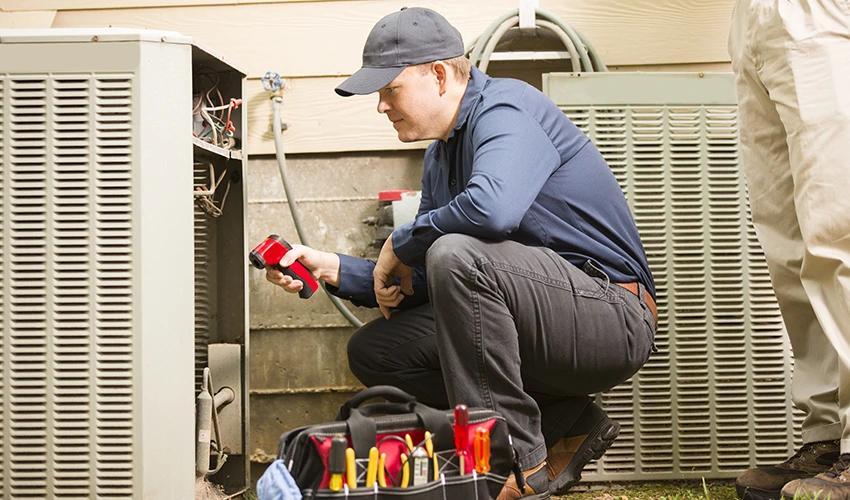It may have taken its sweet time, but warmer weather is finally coming to Minnesota. When the heat and humidity come (and rest assured that they will), it’ll be time to fire up the air conditioning again. While that’s just a figure of speech, neglected AC units can pose a very real fire risk.
Before the cooling season is in full swing, it’s important to make sure your AC unit is safe and ready to keep your home comfortable. Here are four common causes of AC fires and how to prevent them.
Improper Installation
Many factors play into the safety and lifetime of an AC unit, one of which is exposure to corrosive elements. Units that aren’t properly installed can have more exposure to these elements, leading to enhanced fire potential as well as lower efficiency and a shorter useful life.
Prevention Tips: Numerous details play into the installation process. For example, window units should be installed with a slight lean outside to prevent water from building up and dripping onto electrical parts. Consider our professional air conditioning installation services for optimal safety and performance of any AC unit.
Faulty Wiring/Parts
Neglecting your AC unit can leave faulty wires or equipment undetected and pose a high fire risk. For example, an AC fan that has degraded and eventually stopped working can lead to overheating. Damaged wires will likely cause an electrical surge when exposed to moisture, even if they’re patched with electrical tape.
Prevention Tips: You’ll want to make sure all wires are fully intact, and all parts are functioning properly. Have an AC unit/system inspection performed by an HVAC professional who will identify faulty equipment and make any necessary air conditioning repairs.
Flammable Material Nearby
Clutter poses a risk for both window and central AC units. When flammable materials such as paper, leaves, and other debris accumulate around the unit, the potential for an AC fire is much worse.
Prevention Tips: It is recommended to keep the area surrounding the AC unit clear up to at least three feet.
Neglected Maintenance and Cleaning
AC units that aren’t properly maintained pose a much greater fire risk, especially with filters that are worn out or covered with dust and dirt particles. These particles can also accumulate on air vents, coils, and fins, which then obstructs air flow and causes strain on the electrical system, overheating, and potentially a fire.
Prevention Tips: Regular cleaning and maintenance of your AC unit(s) are important, not only for safety, but for efficiency and productivity as well. We recommend having an HVAC professional perform scheduled preventative maintenance before each cooling season. As the warmer months creep closer, making sure your AC unit is safe and ready for the cooling season is a must. Schedule a preventative maintenance appointment today or contact us to learn more about our other cooling system services.



